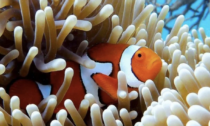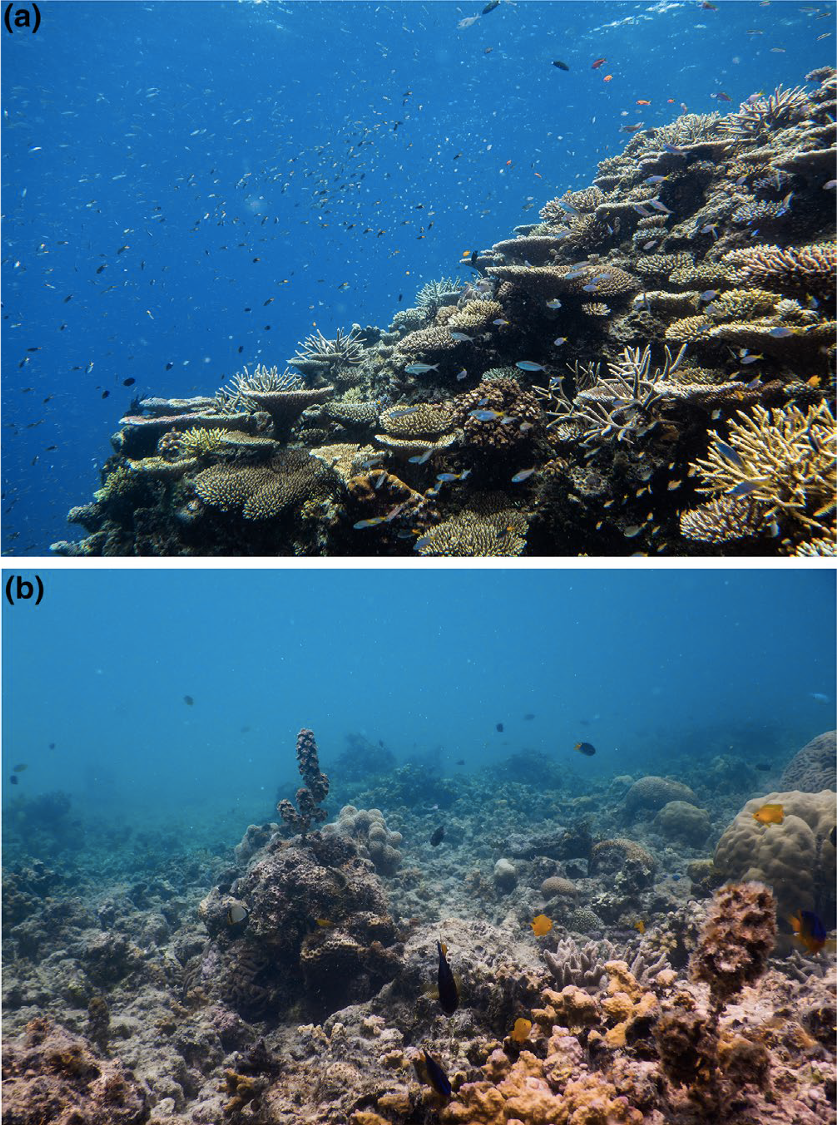
Fish communities on Australia’s famed Great Barrier Reef may become less colorful as oceans warm and corals bleach, according to a new Australian study that looked at changes in reef health, coral types, and resident fish over three decades.
“Future reefs may not be the colorful ecosystems we recognize today,” write marine ecologist Chris Hemingson and his James Cook University colleagues in their paper, published in Global Change Biology.
“Our findings suggest that reefs may be at a critical transition point and might be poised to become much less colorful in the coming years.”
The study, which comes weeks after the Great Barrier Reef was struck by another widespread bleaching event fueled by rising carbon emissions, focused on reefs surrounding Orpheus Island, which is located in the mid-section of the largest coral reef system on Earth.
Previous coral bleaching events have profoundly changed the make-up of coral reefs in the area, with the loss of soft and branching corals a likely factor in the disappearance of brightly-colored fish, which are becoming increasingly rare, the study found.
“As these complex corals become rarer, on future reefs impacted by climate change, fish communities may become duller,” the trio of researchers writes on their group’s website.
To investigate, Hemingson and colleagues looked at the diversity of colors found in communities of reef fishes and related that to the types of habitats where those fishes live.
Whether fishes evolved bright colors to stand out and attract a mate or neutral tones to blend in and avoid predators, their coloration is naturally linked to the coral reefs they inhabit.
Fish communities in healthy parts of the reef with plentiful complex corals were compared to other areas where massive, encrusted corals dominate in the wake of major disturbances, such as heatwaves and cyclones, and degraded reefs with few corals smothered in algae.
“We found that as the cover of structurally complex corals increases on a reef, so does the diversity and range of colors present on fishes living in and around them,” says Hemingson, who focused on small fishes that rarely venture far from their home patch of reef.
“But, as the cover of turf algae and dead coral rubble increases, the diversity of colors declines to a more generalized, uniform appearance.”
 (Hemingson et al., Global Change Biology, 2022)
(Hemingson et al., Global Change Biology, 2022)
Above: Fish communities in healthy (a) and damaged (b) parts of the reef.
This doesn’t bode well for reef fishes in warming waters, so Hemingson and colleagues looked back at data collected annually for the past 27 years on fish communities inhabiting reefs around Orpheus Island, to see whether the trends held true over time.
We know from other previous studies that just 2 percent of the Great Barrier Reef remains untouched by the five mass coral bleaching events of the past 30 years – a truly horrific toll of human-caused, emissions-driven marine heatwaves.
The first recorded mass bleaching event of 1998 hit the reefs around Orpheus Island especially hard, damaging complex branching corals and leading to a “complete shift” in fish communities, Hemingson and colleagues found.
The most eye-catching yellow and green fishes, such as the lemon damselfish and green coral goby, have declined in abundance in the three decades since, by about two-thirds.
“Ongoing declines (exacerbated by further disturbance events) are likely to lead to a complete loss of these brightly colored species,” which would effectively ‘drain’ the color out of fish communities, making them dull and drab, Hemingson and his coral reef compadres write.
Although the massive and encrusting boulder corals that replaced soft, branching corals are more resilient to heat impacts – literally hardening the reef to future stressors – they probably provide less protection from predators for brightly-colored fishes.
“Unfortunately, this means that the corals that are most capable of surviving the immediate impacts of climate change are unlikely to maintain the diversity of colors currently supported by coral reefs,” the researchers write.
“Fish communities on future reefs are therefore likely to be a duller version of their previous configurations, even if coral cover remains high.”
Hemingson acknowledges the grief that people may feel as fish species and corals are lost – an ecological grief that scientists studying coral reefs first-hand know all too well.
But as scientists have shown with gusto, grief can be a powerful motivational force that spurs people to take action, too.
“I can either give up when I feel upset, or use those emotions to motivate me and find better solutions,” Emma Camp, a coral biologist at the University of Technology Sydney told Nature in 2019.
Fighting words for us all to live by.
The study was published in Global Change Biology.














Social Profiles